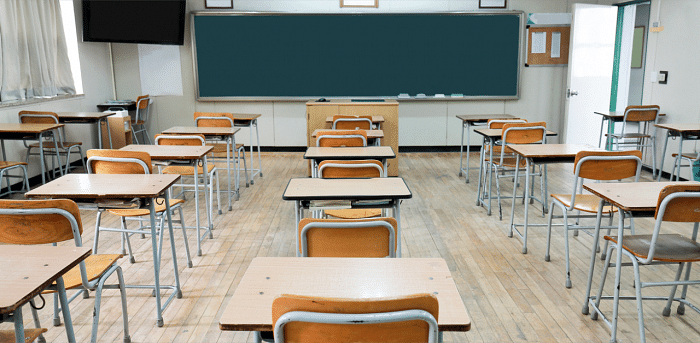
The Department of School Education and Literacy has identified over 1,300 unauthorised private schools across Karnataka and has decided to crack down on them. This not only points to the huge demand-supply gap in schools but is also a poor reflection on the state government’s failure to address the situation, forcing parents to admit their wards to such schools. This is not a new phenomenon. For decades now, the state government has been periodically identifying such unauthorised schools and promising action, only to then decide late in the academic year to allow them to conduct classes and permit students to appear for examinations on “humanitarian grounds”. This cycle repeats annually. The government finds itself in a dilemma because any harsh action would jeopardise the future of the students, more so since the State itself has fallen short on its constitutional responsibility to provide free and compulsory education to all.
This year, the immediate provocation for the government’s action was a protest by parents against schools that were offering CBSE syllabus classes without obtaining affiliation from the board concerned. According to the department, 63 schools were not even registered but had enrolled students, while 95 were offering central syllabus classes though they had permission to offer only state board curriculum. Nearly 300 schools were imparting education in English although they had permission to teach only in Kannada medium. The government has now promised to publish the list of unauthorised schools so that parents and students are not taken for a ride. But what prevented it from doing so until now remains a mystery. Was there collusion between the department’s officials and the school managements? Some of these unauthorised schools had even been permitted to admit students under the Right to Education Act (RTE), thus indirectly legitimising them.
This situation has arisen because the state has never prioritised the education sector, leaving it largely in the hands of private institutions, many of which have no doubt rendered yeoman service. But this has also led to the mushrooming of unauthorised schools. While government schools are being shut in rural areas for lack of students, there is an acute shortage of schools in urban regions like Bengaluru. The government should take steps to bridge the gap by setting up state-run schools wherever they are needed. It must also be realised that neither a merely legalistic and punitive approach to the phenomenon of unauthorised schools nor acquiescing in it on “humanitarian grounds” is a solution to a problem that is mainly a function of the demand-supply gap in good quality schools and the demand for English-medium schools. A more nuanced approach would call for rationalising rules and permits to cater to the need for more schools.